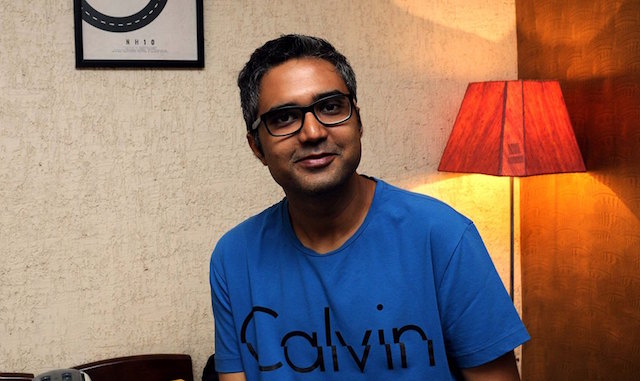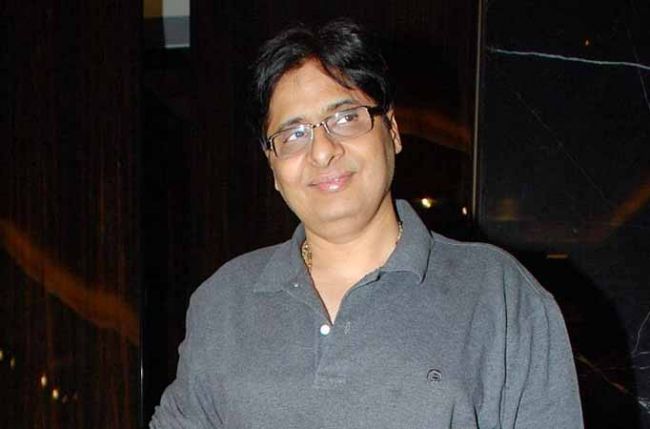I was sitting inside a screenwriter’s den. Things placed in the room silently told a lot about the writer. The cookies served in the bowl were beautifully placed in it. The books kept on the wooden shelf knew how to pose when a visitor arrives. Samuel Jackson and John Travolta were a great sight on the wall. The smoking Al Pacino placed beside, only made that sight more gorgeous. You could find the true Sudip Sharma in the interiors of this room.
He is someone who knows where his strength and weaknesses lie. Someone who knows how to perfectly put his imagination in front of the world. He is someone who has reached this stage of his career through the sheer amount of hard work and professional approach in writing. The NH 10 writer talked to Bollywoodirect about his methodology of writing, his life and why he chose Udta Punjab as a story which needed to be told.
With a sip of tea, we began the conversation….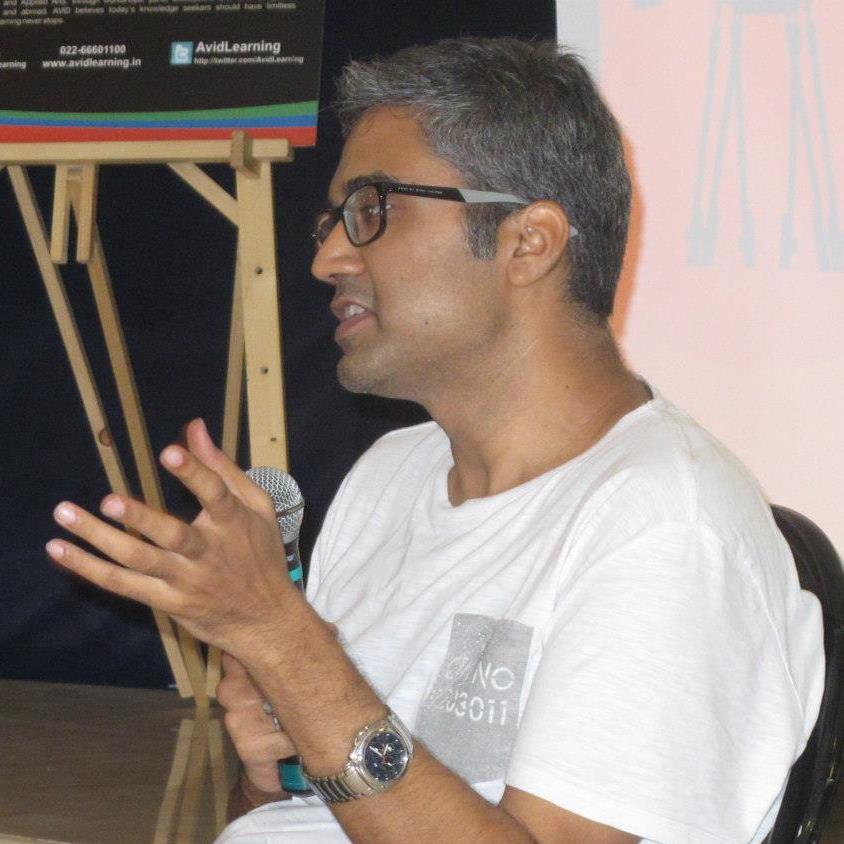
Let’s start with your story before we come to the stories you have written. Tell us about your life, your journey, everything about it.
I was born in Guwahati and studied there till the 10th standard. It was the period when terrorism was making its ground in Assam. That was the reason my father sent me packing to Delhi to do the rest of my studies.
Coming from a very different world of Guwahati to Delhi must not have been very easy?
It was not, you are right. Delhi was very different. I got a cultural shock when I came here. I found Delhi very aggressive in nature, which I still believe it is. The good thing was that everything was new to me, so, there was an excitement to understand the place. I explored Delhi to the fullest and enjoyed every bit of it.
Sudip spent some good 5 years of his life near Sarai Rohilla in Delhi. The cultural exploration was not the only thing he did in Delhi. He studied B.Com and prepared hard to become what his father wanted him to become – a Chartered accountant
Coming from a Marwadi family where being a CA is a ritual, I was expected to excel in it. But I sucked at it. I am a fake Marwadi because I hate Mathematics and Accountancy. But I decided to quit just one night before the exam and called my father at midnight to inform this. He was obviously shocked. He told me to give the entrance or foundation exam at least. I gave that exam and surprisingly cleared it. Actually, I was a very hard-working person, I still am and that is my game. This is the reason I cleared the exam. This is also the reason why I have become a passable writer. I would say I don’t have that much talent but I know how to work hard. It’s a bit like the Rahul Dravid approach.
How did IIM happen to you?
I thought MBA was better than CA, although I was not really excited about that either. It was a fraud played by me. I thought I would prepare for it and fail. Sadly, I got through.
You got through IIM-A!
Yes, I did. And it became a big thing. Now I could not tell my family that I didn’t want to do this because I had already taken this route to escape away from Chartered Accountancy. I thought I would fail and then I would go for literature or may be history but everything was now put to rest.
And how was the IIM experience?
I had a terrible time over there. I did not like it a bit. It was such a competitive place with all the type ‘A’ personalities around. You are failing even if you have scored 90 out of 100 in tests (not that I ever got that much). It was bizarre. I felt I did not belong to that place. Adding to my woes, I had accountancy back in my life. Over there, I decided that this field is not mine and I will have to search for an alternative field.
Did you know that you wanted to enter the world of cinema at that time?
Only after this depressive period at the IIM. All my life I was a good student, good in studies and it was the first time in my life that I was going away from books. For a boy, growing up in a middle-class family, education is a major rudder and when that rudder is removed from your life then you need another one. That is when cinema entered my life. I began watching films over there. I got exposed to international cinema and I knew I wanted to do something in this field.
If not for cinema, I would not have committed suicide but for sure I would have run away from there.
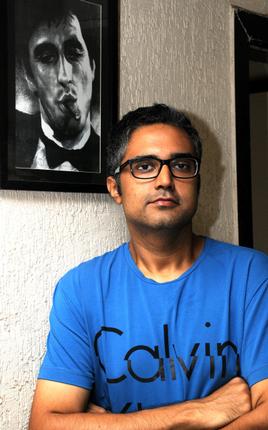 Cinema had entered your world but how did you enter the world of cinema?
Cinema had entered your world but how did you enter the world of cinema?
I think it happened when I was in Asian Paints and came to Mumbai. By then, I and my friend Puneet Krishna (who wrote Bangistan) started making short films and there I realized that I wanted to write for films. I enjoyed the whole process. So, one day I spoke to my wife and told her I want to quit my job. She gave her support and I quit my job and jumped into writing.
How did you deal with that struggle period as a writer because a lot of those films did not do well?
There are two things. There are people who come to become a writer and there are ones who come to the industry as a writer. I was not a writer when I entered the industry. I wasn’t quite there, I knew I had to work hard to become a half-decent writer. In the initial years, I had to struggle. The kind of talent and writing level you have at a particular point of time, you get the same kind of work as well. Also, I did not know anyone, so it was ought to be a tough period.
When you took the decision to become a writer, was your father happy with it?
No, he was not. I thought he was rather ashamed of me. He never told me this but that was what I felt. Whenever he would introduce me to someone, I found him a bit hesitant in calling me a writer or rather someone who writes films.
There was a period in Sudip’s life where he made just short films with some of his friends. He wrote ‘Players’ along with four other writers but he immediately knew he did not belong to this league. It was then that Semshook happened, which actually opened his way into the films.
How did the big break happen?
It obviously happened with NH 10 but Semshook played a big role. It was a nice, emotional film we made. The producer of the movie got us together but he had only a limited budget, so many of us worked practically for free. Now, when I watch it, I find it a bit patchy but I am still proud of the film.
One fine day, I dropped a message to Navdeep (Director NH 10) on Facebook and requested him to watch my film. Navdeep is the sort of person who replies to everyone. He agreed to watch the film. He saw it and liked it. We decided to work together. We wrote Rock The Shaadi. The film went on floors as well but after 15 days of shoot, the curtains came down. That was a bad phase for me as well as Navdeep but there was nothing else to do but to be at it. We wrote four to five scripts after that as well. I was too deep into it by then to quit.
And one of those scripts was NH 10!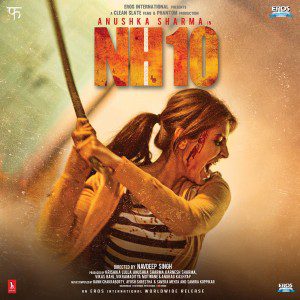
Yes! Phantom liked it as well. Problems did not end here because NH 10 was a women-centric story, plus it had violence also, so funding was a problem. So, this was the period when people liked my work but were still unsure whether they should go ahead with it or not. This made me more confused. I did not know what to do. My first film stopped midway, the other wasn’t getting made despite it being a good story. It was frustrating.
Anushka came on board then. Phantom stuck to making the film and it happened finally.
Who thought of Udta Punjab?
Chaubey (Abhishek Chaubey) had read NH 10’s script even when it was not made. There is a writer’s club we have made where we read each other’s stories. That’s where he read it and he offered me to work with him. He wanted to make a film around drugs. This was the germ of the idea. I had read about the drugs problem in Punjab in Tehelka Magazine. The story was done by Sai Manish. It influenced me a lot. When Chaubey shared this idea, I told him about the drug scene in Punjab. He also got excited because it was a real, important issue. After that, we went to Punjab to research about the drug problem. In the process, we met with policemen, smugglers, doctors, journalists. What we found was startling. The issue was far more serious than what we had initially presumed it to be.
Does research help in shaping the characters too because you were meeting a lot of people in that process?
Yes. It helps a lot in writing the story, shaping the characters because, in your sub-conscious mind, those people have made a place. I remember going to a police station in Punjab and they lined-up some junkies in front of us. It helped us to imagine a scene of a police station filled with junkies, for instance. That scene has made its way into the film. See, you can write about what you know. Whatever you don’t know, you need to research about it.
When I was back, I shared my research with Chaubey and we got started.
Our primary objective was never to impress people with a revelation of drug abuse in Punjab, we just wanted to tell a story about it. There are four characters which are connected in one way or the other with the drug problem and it is their story.
Your attachment with dark tales is not going it seems. First NH 10 and now Udta Punjab looks like on the same line.
It is too early for me to limit myself and say that I am someone who can only write dark tales. We are quick to create perceptions here. Everyone around me has also started saying that I will be branded such a writer (laughs). But to be honest, it is nothing like that. There are some stories which excite you and then you write them. NH 10 and Udta Punjab happened to be dark stories. I do love those stories which are raw and gritty. I find it difficult to write in fairyland. I don’t understand such characters.
I see that most of our films are set in the world of the rich but their concerns are middle class. That is not the right way as those stories tend to seem fake. I have no problem in saying stories of the upper class but then their concerns should be upper class too. This dichotomy is easily caught by the audience. The characters should be deep-rooted in their reality, whatever that might be.
Is Udta Punjab on the lines of Requiem For A Dream?
No, it is not. A lot of people have also asked me if it is inspired by Traffic as well. Both Requiem and Traffic have four stories going side by side. But Udta Punjab has got nothing to do with either. Requiem was about four characters who all are addicted to drugs. In our film, no such scenario is there. You will get to know it when the film comes out. Drugs were a personal problem in Requiem but in our film Drug abuse is more of a social problem.
Any of the films which you liked from the last year.
Titli. I think it was very powerful. Also, Fandry. I believe the characters are very deep rooted in these films. But at the same time, the stories are universal.
Don’t you think that audience feel bored when they watch such films? They come to watch a film to de-stress but such films only make them go more into their problems. Are our independent filmmakers forcibly trying to make issue-based cinema which is very dull?
The logic you are talking about is from the 80s where films were made for rickshaw wallahs and auto wallahs in particular so that they could enjoy dance and song and all the masala in it. Films should not be made imagining a vegetative audience. Why are we limiting our definition of entertainment? We need every kind of cinema at this point in time, I believe.
Do you think the new breed of writers including you, Varun Grover, Apurva Asrani, Juhi Chaturvedi are forcing the stars now to choose good stories? They are giving importance to good stories now. I am asking this question because now Salman Khan and Shah Rukh Khan are also coming out with films with good stories.
I think the newer breed of stars is very much interested in good stories. They want to be a part of good films.
Are they demanding such stories or it is just that they are getting them?
No, they are looking forward now to such stories. When you go to them, they want to read your script and appreciation is there. They are more welcoming. This change has happened. And we should not be complimented for this change. I think Ramu (Ram Gopal Varma) brought this change with Satya. Then Maqbool, Omkara did the same. It is much better than what it was 20 years back.
Navdeep Singh and Abhishek Chaubey, which one of the two were the best to work with?
I think I have managed to work with two people who are very much similar to my style of work and are as much passionate. I am not giving any politically correct answer. With Navdeep as well as Abhishek, I find I am doing some quality work. The process of working and writing is very intense with both of them. But we hit it off because our worldviews are similar.
Would you like to write a novel some day or maybe songs in the film?
I told you earlier that I am not very talented, just hard-working. I had to work hard to become a screenwriter. Now somehow I have found my zone. If I have to now start with novels, it’d mean another five years of backbreaking work. I don’t think I am ready to do that. In any case, I am more interested in cinema than literature as far as writing is concerned.
In literature, what is your favorite?
It is a very difficult question. If I have to pick some then I will pick Raag Darbaari and Maila Aanchal in Hindi and anything Marquez has written, the top one being One hundred years of solitude.
The next project you are working on?
I am working on a story with Abhishek Chaubey. We are just starting with it.
What is it all about?
I cannot tell you much. I am going to Bundelkhand to research about it. That’s the only hint.
Interview By: Shubham Pandey
Image Courtesy: Sudip’s Facebook

